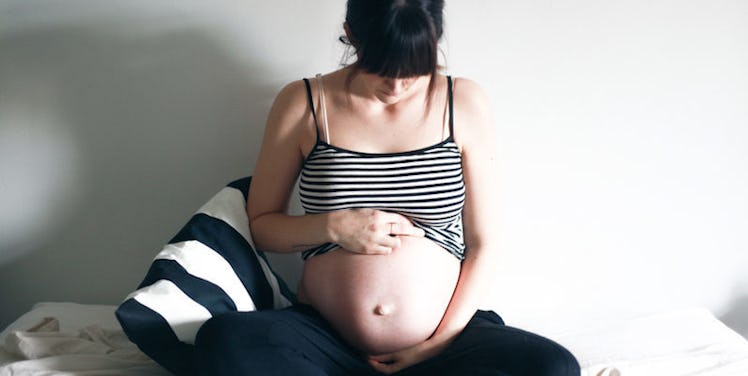
Why The Right Time To Have A Baby Is Really Whenever You Think It Is
The best age for motherhood often depends on who you ask.
Women in their 20s have seemingly endless energy to tackle toddlerhood.
Women in their 30s often note they're glad they got so much life experience before taking time for their babies.
New mothers in their 40s often know who they are and where their next set of diapers will come from.
It seems like each age brings different benefits when it comes to starting a family.
But the truth is, these are all simple generalizations of pregnancy, motherhood and raising a family. Getting pregnant, having a baby and raising a family is different for every woman, regardless of her age.
If you're wondering whether it's too late for you to get started, think again.
Motherhood Through The Decades
Late motherhood, which is described any time after 35, is described as a new phenomenon fueled by birth control, late marriage and women who value their careers.
But as a report from the Washington Post showed, the truth is women have chosen when to have babies based on economics and cultural norms for the past century.
Women have chosen when to have babies based on economics and cultural norms for the past century.
In the early 20th century, it was fashionable to wait until they were at least 24 years old to get started. Bad science said young mothers might pass on biological immaturity.
Even as the years went on, couples who had children right away were judged and gossiped about. When the Great Depression arrived, economic anxieties were heightened as birthrates plummeted.
The idea that starting early and young did not come into fashion until after World War II.
The Baby Boomer generation arrived on the scene alongside a strong economy and a re-commitment to domesticity. In the years after the war, birthrates skyrocketed to 96.3 births for every 1,000 teens between 15 and 19.
By the time the 1970s rolled around, Americans were reevaluating how necessary having children before 20 really was.
During that decade, the number of women who waited until age 30 to 34 to have their first child doubled. In fact, they looked a lot more like the birthrates in the first few decades of the 20th century.
In reality, huge numbers of women having children in their teens and 20s was not the normal. It defied the norms of almost an entire century.
Getting pregnant in your 30s? It fits a long-standing trend.
Getting Pregnant In Your 30s And Beyond
Today, American women are forced to reconcile with the narrative that reproductive technologies are the reason women wait for motherhood. This is problematic for several reasons.
First, a brief history lessons shows that birth control and fertility treatments are not the only factors at play.
Second, it suggests that all women who wait need help when they are ready to begin planning for their family. This is also not true.
Here's what you need to know:
Women in their 20s are primed for the demands of pregnancy, and research shows that fertility is high during this period. These are great reasons to start having a baby.
It should be theoretically easier to conceive a child, carry that baby and recover from pregnancy while you are young.
But leaving your 20s does not mean an end to healthy pregnancies.
But leaving your 20s does not mean an end to healthy pregnancies.
Women who wait until the end of their 20s and their early 30s are actually more likely to be healthier than mothers who give birth as teenagers.
While fertility may begin to sink (though this is highly dependent upon genetics), women in their 30s are often free from the stress and disease that can lead to negative health outcomes.
They also have more money to spend on children's clothes and other childhood expenses, meaning a better quality of life for their offspring.
Your body may not be in full baby-making mode. But depending on your personal life and health, you may still be better prepared for motherhood than you were at your peak fertility.
Over 35? This is the point where conception becomes harder for some women, and one out of five women may struggle to conceive once they hit 38.
However, not much is known about the exact moment a woman's fertility starts to decline.
Some women may conceive as easily at 40 as they could have at 20. Much of what happens during this period of your life comes down to your own individual fertility, as well as that of your partner's.
Not much is known about the exact moment a woman's fertility starts to decline.
Ultimately, the best age to start your family is in the right moment for you, not just the right time for your biology.
While you cannot turn back the hands of time once they have passed, there is no reason to feel the pressure to get started right out of the gate.
If you take the time to get to know your body and get to know yourself, you find the right time to have a child, whether that is at 22, 32 or 42.